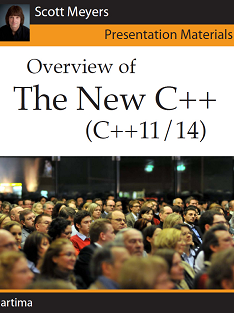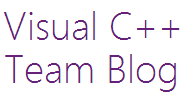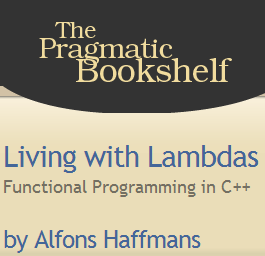Sometimes You Must Violate an Abstraction to Maintain It -- Andrew Koenig
 Koenig explains
Koenig explains std::move as, well, just a bit of a fib, really:
Sometimes You Must Violate an Abstraction to Maintain It
by Andrew Koenig
From the article:
What
std::movereally does is to return its argument as an rvalue reference. In effect, every time we usestd::move, we are telling a lie. In this case, by writingstd::move(t.s), we are saying that we want to uset.s, but to do so in a way that treatst.sas an rvalue. It is acceptable for us to tell this lie for exactly the same reason that it is acceptable for us to castt.stostring&&in the previous example: We know thatt.sis a member oft, andtreally refers to an rvalue in our caller's context.We can tell such lies any time we are willing to take responsibility for the consequences. ...

 Recently at Dr. Dobb's:
Recently at Dr. Dobb's: C++14 is still very much a draft -- it only became feature-complete in April and is now in its primary comment ballot. But interest in this new standard is high, with a restarted
C++14 is still very much a draft -- it only became feature-complete in April and is now in its primary comment ballot. But interest in this new standard is high, with a restarted  The Visual C++ Team Blog has been publishing an article series about optimizations that C++ compilers perform for you under the covers to make your code more efficient. This short nugget answers a question people sometimes ask: "What's constant folding, and why do I care?"
The Visual C++ Team Blog has been publishing an article series about optimizations that C++ compilers perform for you under the covers to make your code more efficient. This short nugget answers a question people sometimes ask: "What's constant folding, and why do I care?" A fresh Scott Meyers post about a brand-new C++14 feature:
A fresh Scott Meyers post about a brand-new C++14 feature: We have such a powerful language, and what a powerful language it is.
We have such a powerful language, and what a powerful language it is.